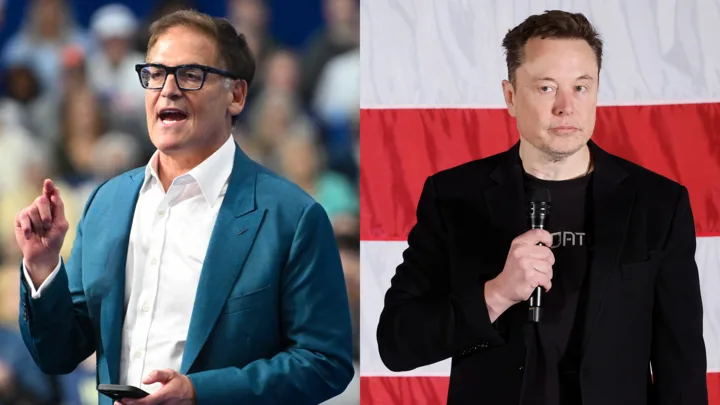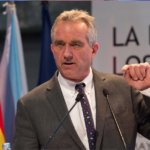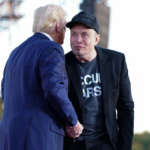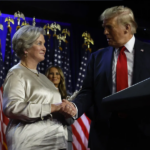Billionaires Elon Musk and Mark Cuban took the campaign trail by storm, each supporting their preferred candidates in starkly different ways. While Musk, backing Donald Trump, opted for a freewheeling approach during his event in Pennsylvania, Cuban delivered a more structured and focused economic argument for Kamala Harris in Wisconsin. Their contrasting styles reflect not only their personal campaign tactics but also the broader strategies of the presidential candidates they support.
A Tale of Two Styles
Both Musk and Cuban took the stage with smartphones in hand, yet their approaches quickly diverged. Musk, the CEO of Tesla, SpaceX, and owner of X (formerly Twitter), used his phone to stream a live X space, sharing an impromptu commentary that ranged from politics to space exploration. He encouraged early voting for Trump, spoke on issues like crime, immigration, and even took a selfie with a young audience member. His unfiltered style included repeating debunked claims about Dominion voting systems, reminiscent of the bombastic tone often associated with Trump’s campaign.
Cuban, in contrast, used his phone for more traditional means: reading prepared remarks. The “Shark Tank” star and Dallas Mavericks owner delivered a tightly focused, 12-minute speech supporting Harris, zeroing in on economic issues. Cuban’s argument centered on Harris’s plans for small businesses and his criticism of Trump’s tariffs. According to a Yahoo Finance analysis, over 85% of Cuban’s speech was devoted to economic policy, a far cry from Musk’s sprawling commentary.
Diverging Campaign Focus
The distinct styles of Musk and Cuban also mirror the campaign strategies of Trump and Harris. Cuban’s disciplined approach aligns with Harris’s reputation for staying on message. During a recent interview, Harris defended her careful communication style, saying that “certain things must be repeated to ensure that I have everyone know what I stand for.”
Musk, meanwhile, embodies Trump’s unscripted, off-the-cuff manner. His speech in Folsom, Pennsylvania, was largely focused on immigration, crime, and free speech. In classic Trump fashion, Musk lambasted the Biden administration, even drawing comparisons to the dystopian “Mad Max” movies. His remarks were much broader in scope, touching on inflation and national debt only briefly, as he tackled a wide array of topics.
High Stakes and Key Roles
The differences in tone and focus reflect the roles Musk and Cuban are expected to play in the final stretch of the 2024 campaign. Musk, who has donated $75 million to a pro-Trump super-PAC, is heavily involved in Trump’s get-out-the-vote operation in Pennsylvania and other battleground states. Cuban, on the other hand, is reinforcing Harris’s economic message, using his influence to sway undecided voters in swing states.
As the race intensifies, these two high-profile billionaires are setting the tone for the campaigns they support. Cuban’s clear, targeted messaging stands in stark contrast to Musk’s unpredictable, wide-ranging speeches. In a way, their approaches are microcosms of the larger battle between a highly scripted Harris and the unpredictable Trump.
Looking Ahead
As the final weeks of the campaign unfold, the contrasting styles of Musk and Cuban may help to define the voter experience. Cuban’s economic arguments could resonate with entrepreneurs and small business owners, while Musk’s broader appeal to issues like crime and free speech might energize Trump’s base. Whether through disciplined messaging or off-the-cuff improvisation, both billionaires are poised to play pivotal roles in shaping the 2024 election narrative.





